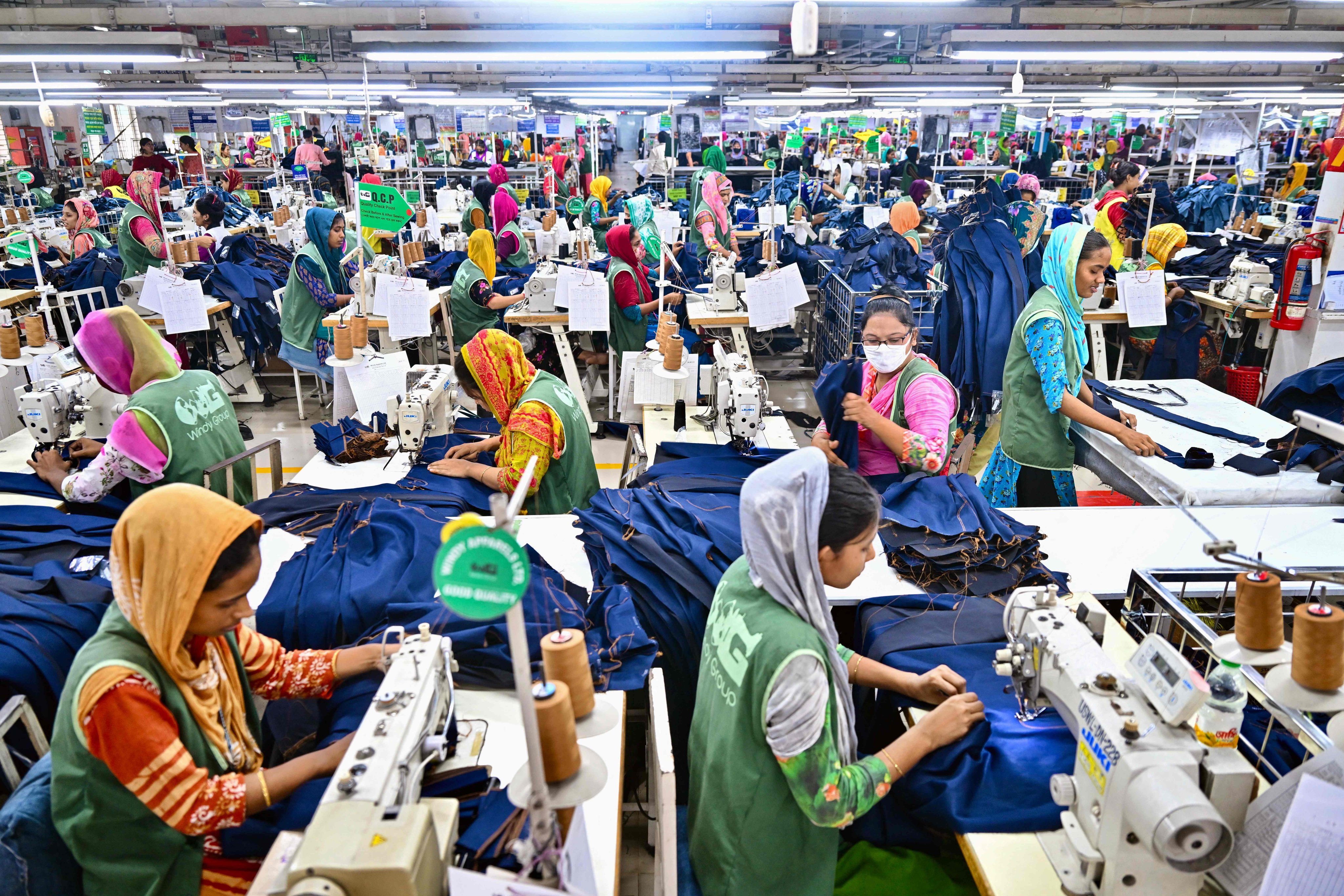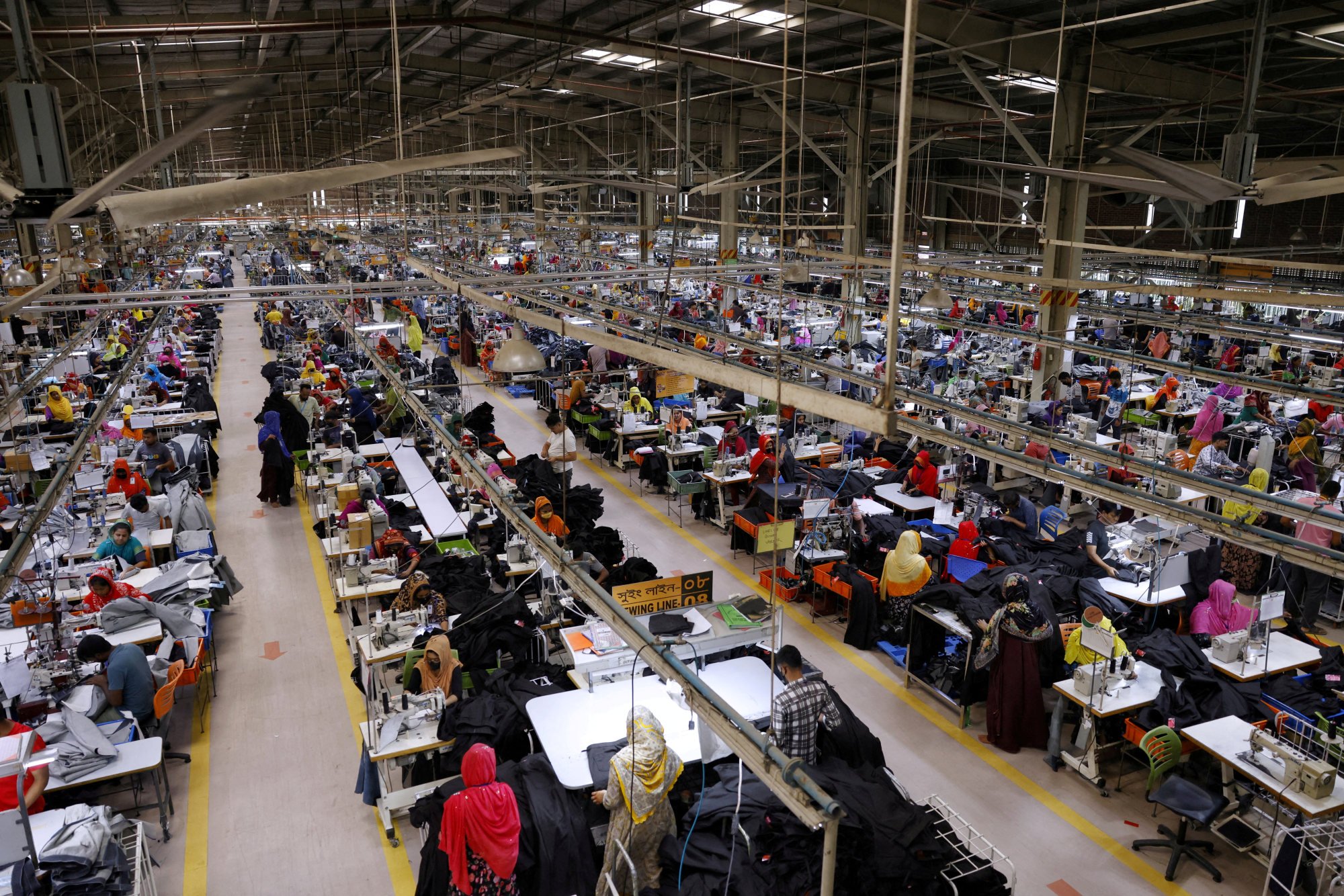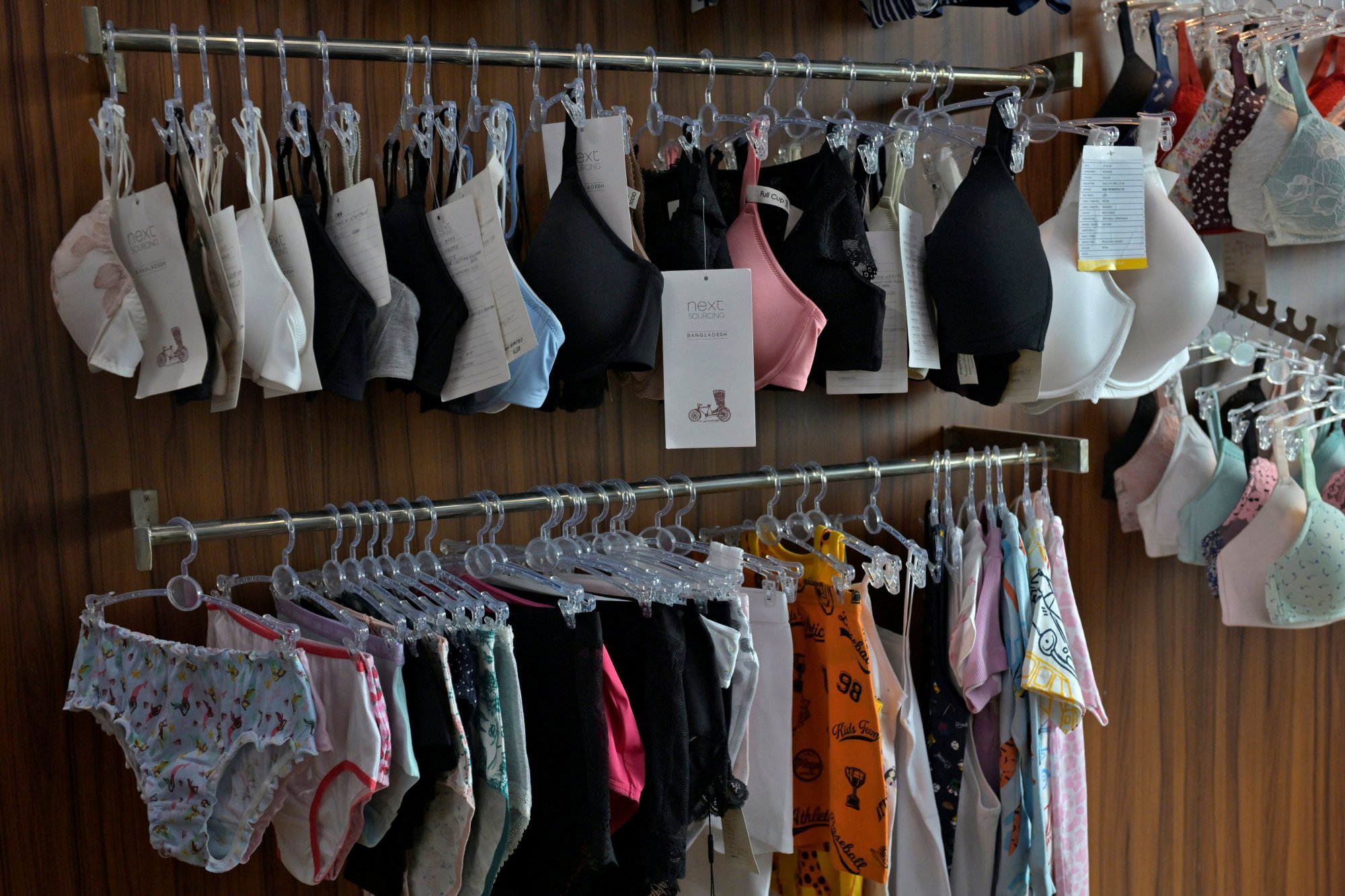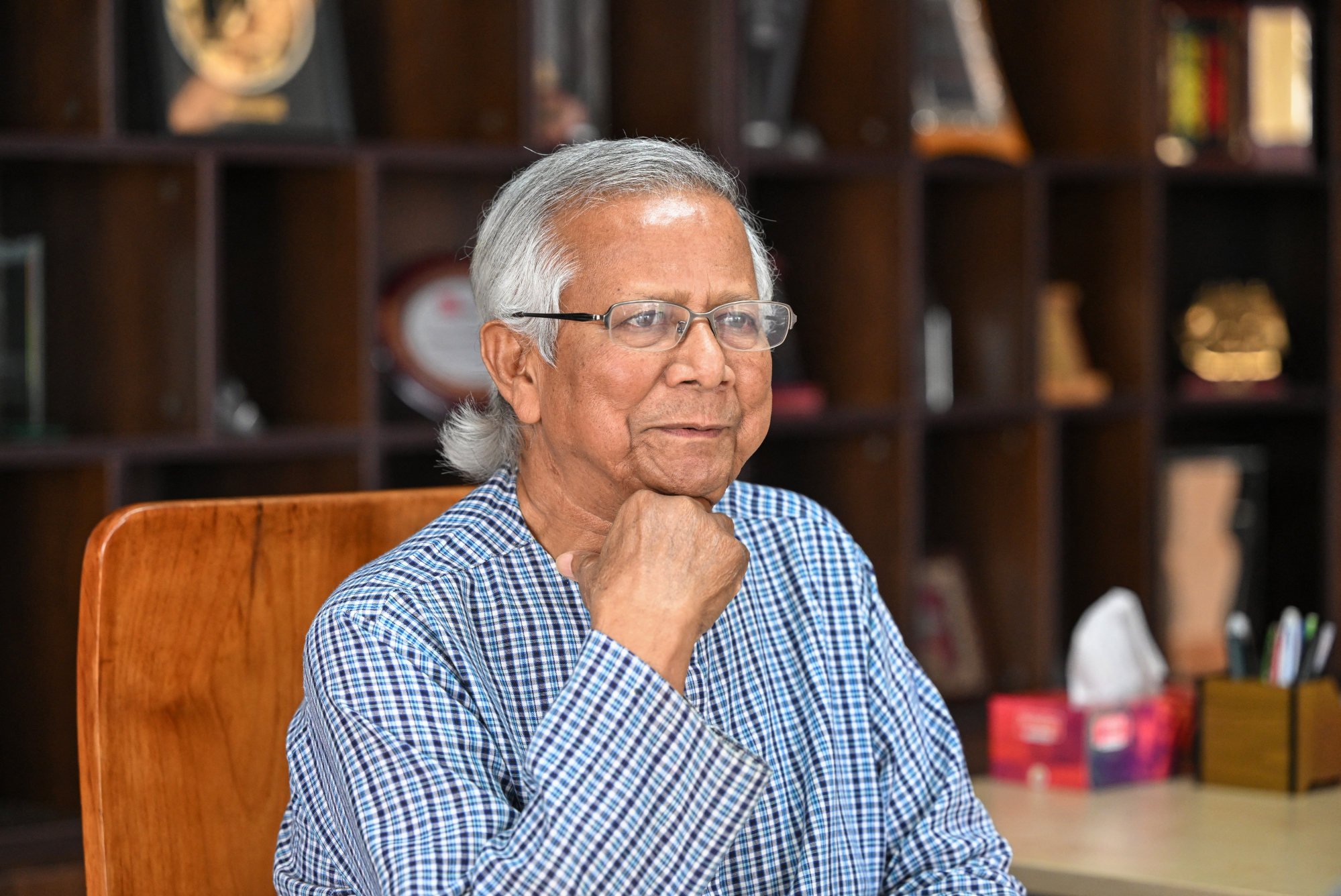Bangladesh scrambles to avert devastating 35% US tariff
The proposed levy would strip Bangladesh of its price advantage over rivals like Vietnam, jeopardising livelihoods across the country

A proposed 35 per cent US tariff on Bangladesh’s goods could devastate its garment industry and eliminate millions of jobs, observers say, as Dhaka scrambles to avert the looming trade blow.
Experts warn the tariff could cripple Bangladesh’s export competitiveness and fuel social unrest just as its interim government prepares for a crucial general election. While Dhaka has made efforts to secure concessions from Washington, analysts are sceptical it can avoid the tariff.
Bangladesh’s ready-made garments industry employs around 4 million people and is the backbone of its economy. It contributes to over 80 per cent of the country’s total export earnings, according to data from the Foreign Investors’ Chamber of Commerce & Industry in Dhaka. The US is one of the biggest markets for the industry.
US President Donald Trump announced that starting on August 1, a 35 per cent tariff would be imposed on Bangladeshi imports – down from 37 per cent that he indicated in April but still more than double the previously proposed 15 per cent.
The proposed levy could strip Bangladesh of its price advantage over regional trade rivals such as Vietnam, which faces a lower 20 per cent US tariff, according to analysts.
“If the US implements such a high tariff, then sections of our industry will shut down. Our exports will be in peril. We will be in distress,” said Abdul Wadut, whose firm, Winter Group, exports knitwear and jumpers globally.
About 30 per cent of the company’s exports are shipped to the US.

“We appeal for the elimination of the import tax. If at all a tax is levied, it should be minimal. We operate on marginal profits,” Wadut said.
The challenges for Bangladesh’s garment exports, the world’s second-largest, have been further compounded by reports of the US asking for 40 per cent of the raw materials for the exports to be sourced locally.
Bangladesh garment industry sources raw materials like cotton from nearby countries such as India and China to minimise logistics costs.
Wadut said that this issue was a lesser concern as Bangladeshi garment makers had been sourcing a lot of raw materials domestically.
Washington’s proposed tariff is likely to increase pressure on Bangladesh’s interim government, which has been in power since last August after student-led protests toppled the regime of then prime minister Sheikh Hasina.
Unhandled type: inline-plus-widget {“type”:”inline-plus-widget”}
Bangladesh has been negotiating to buy more US products to stave off Washington’s tariff.
It recently signed an initial agreement with US wheat growers to import 700,000 tons of the grain annually over five years. A memorandum of understanding was signed on Sunday between Dhaka’s Directorate General of Food and the US Wheat Associates, a trade group representing American growers.
The agreement marks a diversification for Bangladesh’s wheat sources, traditionally dominated by Russia and Ukraine.
Analysts said that there was little indication so far that the measure would help avert or substantially reduce the planned US tariff on Bangladesh’s exports.
“It does not look like any big breakthrough is about to happen,” said Sreeradha Datta, a professor of international relations at O.P. Jindal Global University in the northern Indian state of Haryana.
Negotiations between Dhaka and Washington, however, were yet to be concluded and it was hard to gauge progress for now, she added.
“Things were beginning to turn around in Bangladesh, but this could be a big blow unless the tariff is reduced substantially,” Datta said.
Bangladesh’s economy has been struggling since the Covid-19 pandemic disrupted its supply chains and fuel inflation.

Priyajit Debsarkar, a London-based author who specialises in South Asia, said Bangladesh’s wheat import deal with the US was a “balancing act” to secure a reprieve from the US tariff.
Debsarkar highlighted that the biggest proportion of the country’s garments was affordable wear, which had made the country an attractive supply source for Western markets.
“That is why if the proposed US import tax of 35 per cent is implemented, there will be a severe backlash across the garments industry. Huge sections of the industry may be wiped out,” he said.
Pressure on interim government
Bangladesh’s interim government, headed by Nobel laureate Mohammad Yunus, has been focusing on electoral reforms and planning for the general election, which is slated to be held somewhere between April and June next year.
“But if the US tariff hits, there will be job cuts and unrest in society,” Debsarkar said, adding that the tariff issue needed to be addressed as a top priority with only days left before its effective date.
Dhaka’s strained relations with India have further complicated issues, with New Delhi clamping down on the use of its territory as a transshipment hub, according to Debsarkar.
“The ball is in the court of the Yunus government,” he said.

Ties with Bangladesh have also been aggravated by Delhi’s concerns about violence against the country’s Hindu minority, an allegation that Dhaka has rejected. A reset of relations has also been complicated by Hasina’s presence in India amid charges filed by Bangladeshi prosecutors over her role in orchestrating attacks against student leaders last year.
Despite the tense relations, the leaders of both countries have been sending out positive signals.
Following the crash of a Bangladesh air force jet into a school on Monday, which killed at least 31 people and injuring more than 50, Indian Prime Minister Narendra Modi expressed his condolences and pledged to provide support to Bangladesh.
Debsarkar noted that India was the first country to send specialist doctors, nurses and specialist equipment to help Bangladesh deal with the disaster. Yunus had signalled that he was willing to reach out to Delhi, as evident by his gift of a large parcel of mangoes delivered to Modi a week ago, she added.